02 February 2021, 23:41
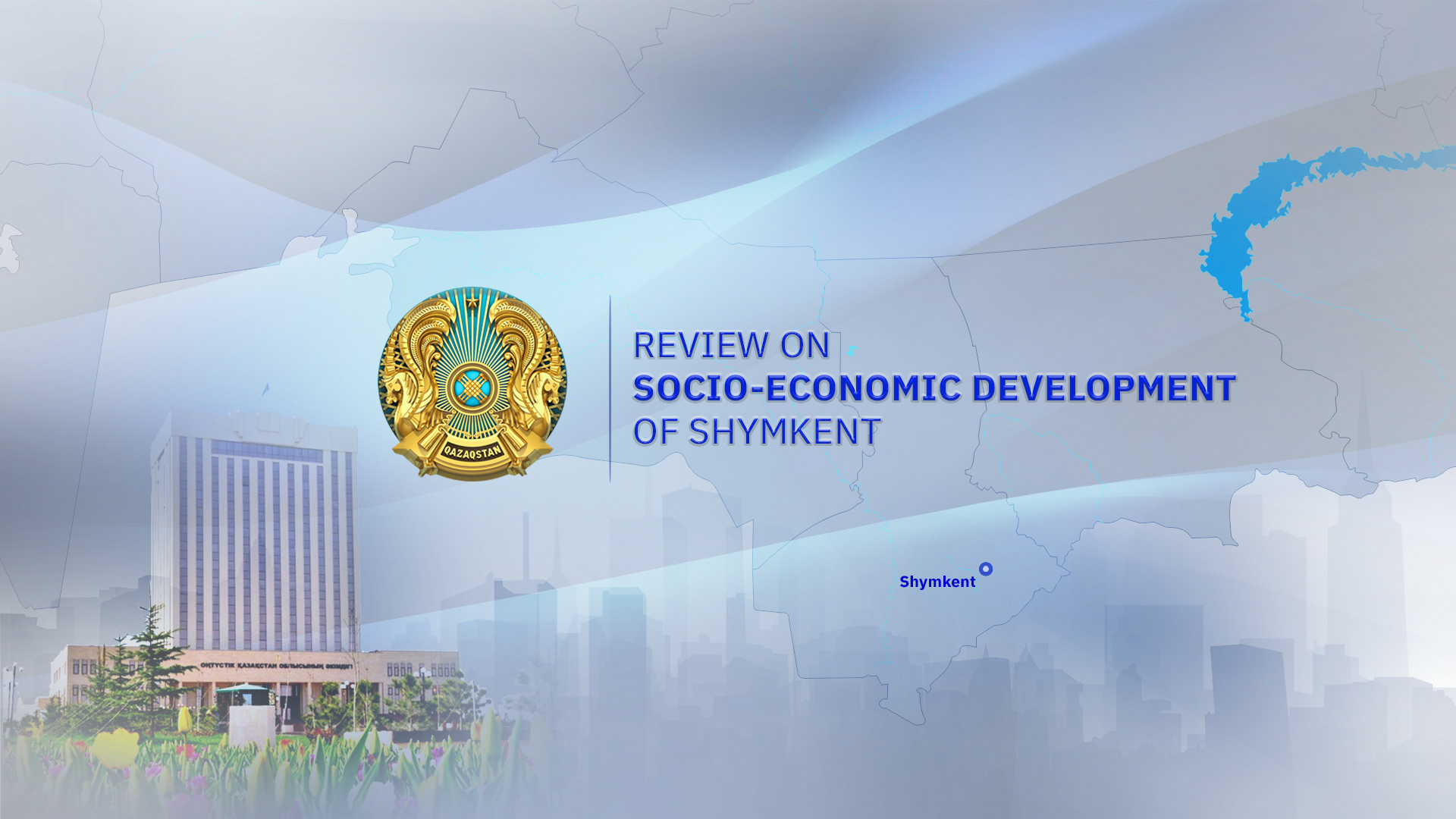
Shymkent is one of the three cities of Kazakhstan with the status of republican significance. This city in the south of Kazakhstan is a large industrial, commercial and cultural center. Taking into account the socio-economic situation associated with the coronavirus pandemic in the world in general, and in Kazakhstan in particular, it can be noted that in Shymkent, 2020 passed with positive dynamics.
In the first 9 months of last year, the gross regional product of Shymkent amounted to 1.5 trillion tenge or 100.8% compared to the corresponding period of 2019. According to operational data, there is an increase in the volume of attracted investments by 40.9%, construction — 43.1%, the area of commissioned housing increased by 23.9%, the volume of agriculture increased by 4.4%.
Measures to restore economic activity
In 2020, 3.2 billion tenge was allocated for the development of entrepreneurship in the region, 2.8 billion tenge was allocated for subsidizing agriculture.

In order to expand production and increase production within the framework of the industrial development program in 2020, 22 projects were introduced in the amount of 37.7 billion tenge, more than 1,000 jobs were created.
Also, during this period, housing construction was carried out at an accelerated pace. So, at the end of the year, the area of housing commissioned increased by 23.9% and amounted to 649 thousand m2.
As a result of the work done, 278 billion tenge of investments were attracted to the city, which is 40.9% more than in 2019. The volume of construction work increased by 43.1%, agriculture — by 4.4%, retail trade — by 1.8%.
At the same time, as part of measures to stabilize prices for socially significant food products in compliance with sanitary requirements, the city held weekly food fairs with the participation of local producers and peasant farms. Consumer goods at such fairs are sold at prices 10-15% lower than market prices.
To restore economic growth during a pandemic, an anti-crisis action plan was approved in Shymkent in accordance with the Comprehensive Plan of the Government of the Republic of Kazakhstan.
The plan provided for 29 events in 5 areas. It also provided for measures to optimize budget spending, provide employment, and prevent price increases.
In order to stimulate and support the activity of entrepreneurship in the region, the state has significantly increased support measures. Thus, the amount of funding under state programs to support entrepreneurship increased from 2.4 billion tenge in 2019 to 3.2 billion tenge in 2020, or 1.3 times.
In addition, in accordance with the Decree of the Head of State "On further measures to stabilize the economy", additional measures of tax incentives were taken to support business. These measures cover various sectors of the economy from trade to tourism. In particular, large shopping facilities, shopping and entertainment centers, cinemas, theaters and exhibitions, sports facilities, catering facilities, hotels and other objects of tourist activity. Thus, the Decree of the Government of the Republic of Kazakhstan regulates exemption from payment of property tax, individual income tax of individual entrepreneurs working in the generally established regime, as well as taxes from the wage fund for the most affected sectors of the economy.
In order to determine the specific risks of spending associated with this exemption, the analysis found that the city's budget deficit in 2020 amounted to 5.4 billion tenge. These expenses were reimbursed from the city budget in accordance with the Budget Code of the Republic of Kazakhstan.
Measures to stabilize prices
Within the framework of measures to stabilize prices for socially important food products, the following works were carried out:
Borrowed funds were issued to such large retail facilities as the Gramad hypermarket — the loan amount is 800 million tenge, the Firkan retail chain - 300 million tenge, Hermes LLP with mobile retail outlets - 15 million tenge. Special contracts were concluded with all of them, on the basis of which the townspeople could purchase 17 socially important food products at fixed prices.
To maintain stable prices for bread made from first grade flour, the flour producer TURAR LLP was allocated 505 million tenge of borrowed funds.
For carrying out commodity intervention in 2020, 1.3 billion tenge were allocated from the stabilization fund. With these funds, the first grade flour, granulated sugar, buckwheat groats, rice, pasta and sunflower oil were purchased directly from commodity producers. All these goods were sold to trade objects through JSC SEC Shymkent. Funds from the sale of goods are fully spent on replenishment of the circulating assets of trade facilities.
In addition, there are mobile social retail outlets in the city.
In general, it should be added that work on measures to stabilize food prices is being carried out on an ongoing basis.
Social support to population, Birgemiz and civic cohesion
Since the beginning of 2020, 24,126 veterans and low-income citizens were provided with monthly and one-time social assistance in the amount of 1,422.9 million tenge.

32,929 families (161,975 people) were assigned state targeted social assistance, 17.8 billion tenge were paid.
In addition, 28,778 children from low-income families received guaranteed social packages.
Also, citizens who lost income during the state of emergency received social benefits in the amount of 42,500 tenge. At the first stage (March-May 2020), 285,551 citizens received 19.9 billion tenge (285.5 thousand people received payments in 1 month, 183 thousand people — in 2 months). At the second stage (July-August 2020), 143,519 citizens received social benefits totaling 6.1 billion tenge.
Certain categories of the population received financial assistance in the amount of two monthly calculation indices (5,556 tenge) for food and household items:
- during the emergency (March-May) more than 74 thousand residents of Shymkent received payments in the amount of 996 million tenge;
- during the quarantine period (July-August), over 89 thousand citizens received payments in the amount of 958.3 million tenge.
Also, Birgemiz charity foundation allocated 2.1 billion tenge in this difficult period for all — 50 thousand tenge each for 41,630 people. In addition, 1 million disposable masks were given to 20 thousand families from the fund.
Thanks to sponsorship, 1,800 families received food packages on the eve of Nauryz, and 1,600 families received similar support for the Day of the Capital.
Development of industrial sector
In the 12 months of last year, industrial production in the region increased from 2019 by 12.9% to 654.2 billion tenge.
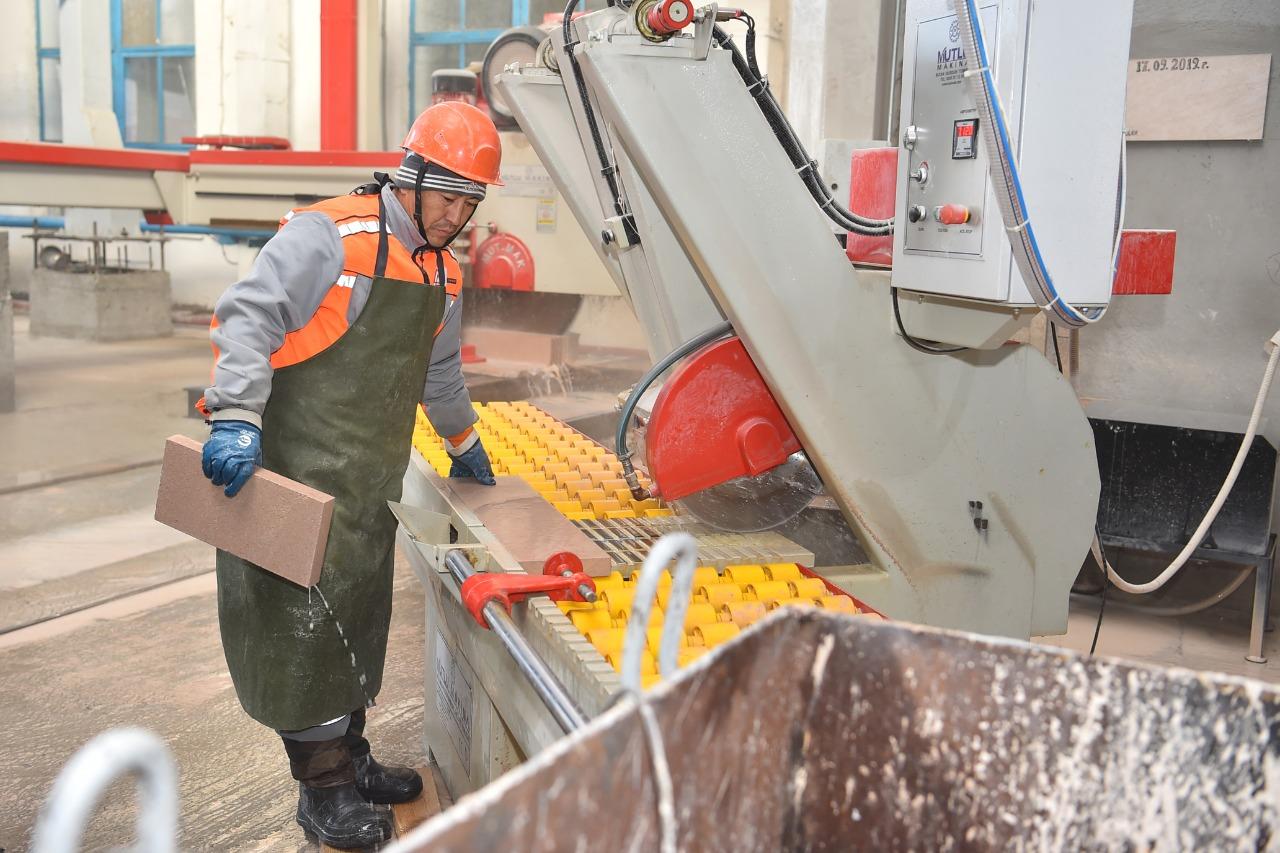
Despite the epidemiological situation and quarantine restrictions, industrial enterprises in 2020 worked without interruption. However, due to the COVID-19 pandemic, export restrictions and a shrinking consumer market were observed, which, in turn, influenced a decrease in demand for manufactured goods. Enterprises producing petroleum products, drinking beverages, as well as light and chemical industries were particularly affected.
Within the framework of the state program of industrial and innovative development of the Republic of Kazakhstan for 2020-2025. in the city of Shymkent in the past year, 22 investment projects were implemented in the amount of 37.7 billion tenge with the creation of more than 1 thousand new jobs. Of these, 20 projects worth 30.9 billion tenge were implemented on the business support card and 1,074 jobs were created.
The largest implemented projects in 2020:
Shymkent is preparing to launch agro-industrial zones.
The area of agricultural land in the city is 62.6 thousand hectares. Of these, 39.5 thousand hectares are arable land. In 2020, 27.9 thousand hectares or 70.6% were developed, which is 1.2 thousand hectares more than in 2019.
Additionally, 11.7 hectares of industrial greenhouses were sold (farm Tazaanim — 6 ha, farm Arman Agro — 3.7 ha, farm Kolesnikov A.V — 2 ha) and 15 ha of intensive apple orchard (FE D-Sabyr).
In 2020, 2,847.7 million tenge was allocated for state support of the agricultural sector. (including from the republican budget — 1,137.9 million tenge). The funds were spent 100%.
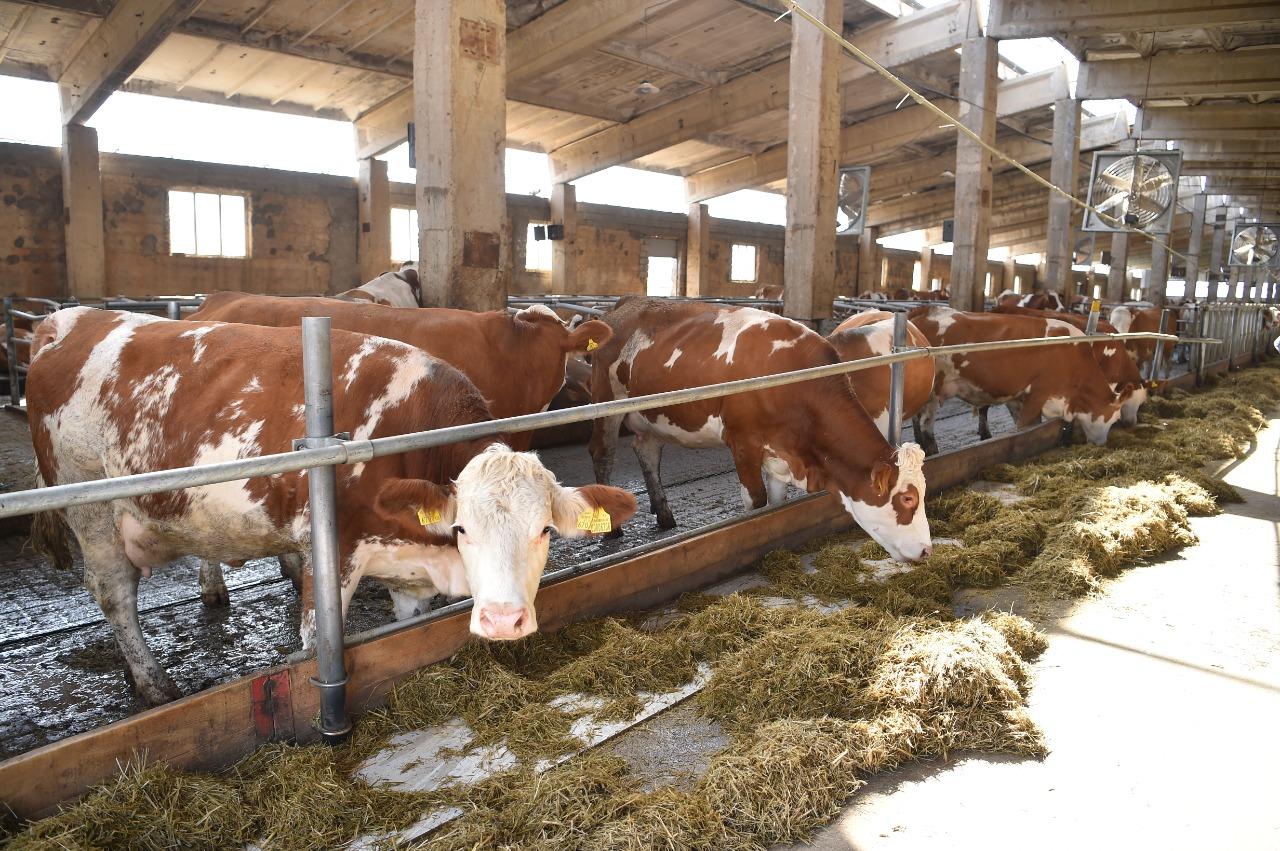
As a result, in January-December 2020, the gross agricultural output amounted to 36.1 billion tenge. Compared to the corresponding period of the previous year, this figure increased by 4.9 billion tenge. The physical volume index was 104.4%.
The export volume of agricultural products amounted to $138.8 million (January-November). Compared to the same period in 2019, this figure increased by 107.5% or $9.7 million. The annual plan was fulfilled by 102.8%.
The volume of retail trade in January-December amounted to 414.7 billion tenge. or 101.8% compared to the corresponding period last year.
Among other things, work is underway in the city to launch two agro-industrial zones. In particular, land was allocated for the construction of modern industrial greenhouse complexes on an area of 136 hectares near the transport and logistics center. Under the projects envisaged at the first stage, 8 investors-developers were given 30 hectares of land for lease for 12 years. At the second stage, another 20 projects for the construction of industrial greenhouses on 60 hectares of land will be implemented.
In the area of the residential area "Kainar Bulak" it is planned to create an industrial zone of the food industry "Bozaryk" for the processing of agricultural products.
The following projects are expected to be implemented here:
As for investment and lending issues, in 2020 in Shymkent 10 investment projects were implemented for a total amount of 5.3 billion tenge: FE D-SABYR, farm Taza Onim, farm Kolesnikov A.V., farm Arman-AGRO, Tassai kus LLP, Shymkent kus LLP, Akhmedov Muradzhan IP, Baiterek AGRO LLP, Rakhat-Agro LLP, Bayan Sulu LLP.
Thus, investments in the amount of 7.6 billion tenge were attracted to the fixed capital of agriculture and food production in January-December 2020, which increased by 3.3 billion tenge compared to the previous reporting period.

Shymkent is an attractive city for investors
The total volume of investment in the city's economy in January-December 2020 amounted to 276.6 billion tenge of investments. For comparison, in 2019 this figure was 40.1% lower.
This growth was achieved by attracting investments in industry, transport and logistics, health and education, as well as in real estate transactions.
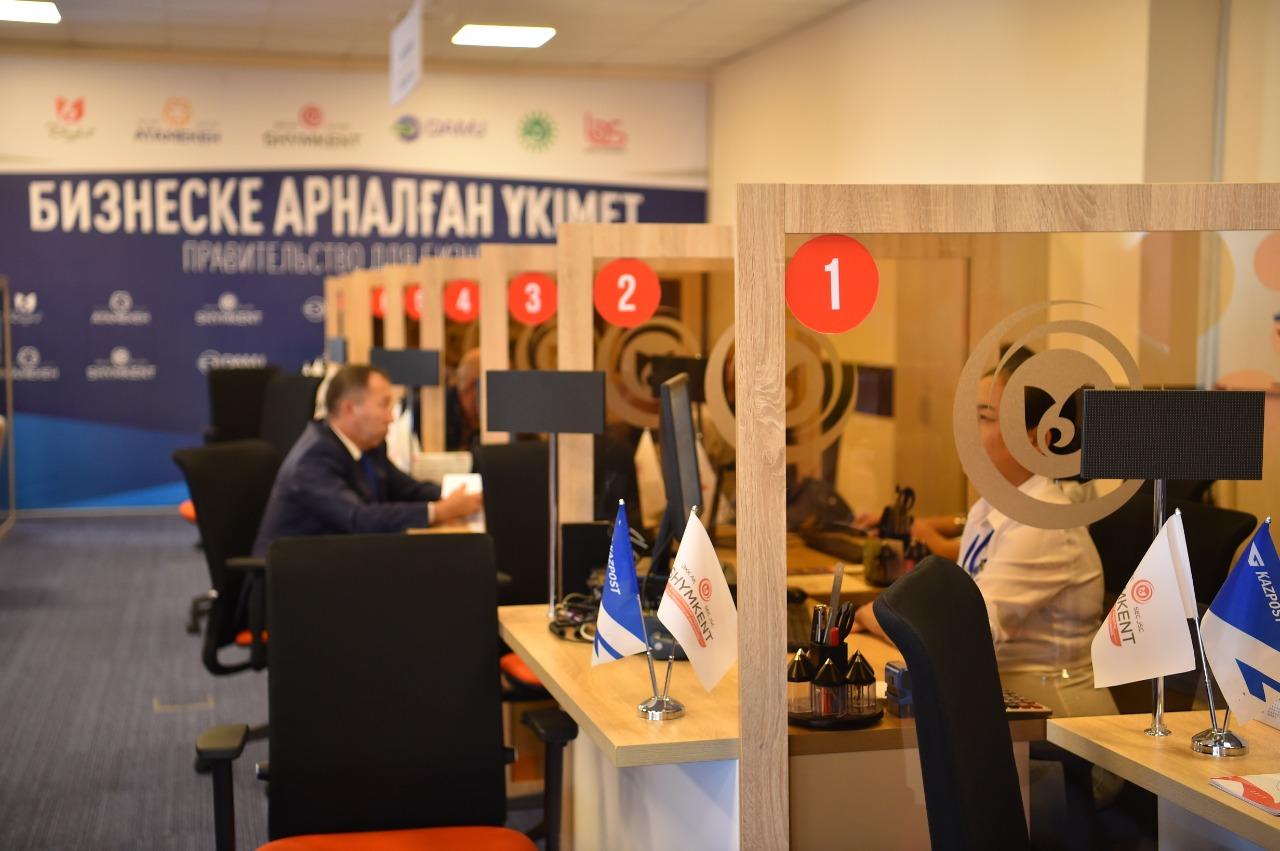
At the end of 2020, a base of 157 investment projects in the amount of 1.4 trillion tenge, implemented in the city during the period from 2020-2025, was formed.
In general, 5 projects were implemented with the participation of foreign investors in the amount of 13.1 billion tenge. with the creation of more than 350 new jobs.
1. LLP Rakhat-Shymkent — production of sugar and jigging cookies (Korea);
2. JV Lux Shoes LLP — production of shoe soles (Turkey);
3. LLP DALSAN — production of hygiene products (Turkey);
4. LLC Avelar Solar Technology — construction of a solar power plant with a capacity of 20 MW (Russia);
5. LLP Shymkent Smelting — production of black lead (PRC).
In general, work to increase the investment attractiveness of the city and attract investment is carried out here constantly. To provide the investor with all the necessary services, the city has a front office of Government for Business - Shymkent Invest, which operates on the principle of one window.
In addition, in order to attract investors, a new industrial zone Zhuldyz with an area of 306 hectares is being created in the city. At the first stage, it is planned to develop 100 hectares (2020-2021), at the second stage — 206 hectares (2021-2022).
Also, work is underway to create a new urban-type site Shymkent City on an area of 427 hectares. During the implementation of this project, it is expected to attract private investments in the amount of more than $1 billion. The project will provide housing for 50 thousand residents of the city.
Active support of small and medium-sized businesses
According to official data in the city of Shymkent in 2020, the number of operating small and medium-sized businesses amounted to 69,876 units. Growth over the same period in 2019 — 100.6%.
The number of people employed in the SME sector for 9 months reached 166.0 thousand people (an increase over the same period in 2019 — 12.4%). The output of products by small and medium-sized businesses in January-September 2020 amounted to 669.1 billion tenge.
At the end of 2020, within the framework of the state program for support and development of business Business Road Map-2025, 494 projects were supported for the amount of 2,441 million tenge, including:
1) 218 projects for the amount of 1,578 were supported to subsidize the interest rate on bank loans , 3 million tenge.
2) on partial guarantee of bank loans, 209 projects were supported for the amount of 572.8 million tenge.
3) on the provision of state grants, 67 projects were supported in the amount of 289.9 million tenge.
Within the framework of the Economy of Simple Things program, entrepreneurs received proposals for 92 projects totaling 88.7 billion tenge.
Of these, 56 projects were approved for the amount of 35.8 billion tenge. In particular, subsidizing agreements were concluded for 48 projects in the amount of 32.1 billion tenge. At the stage of concluding subsidy agreements, there are now 8 projects worth 3.7 billion tenge.
At the same time, 18 projects worth 23 billion tenge are under consideration in second-tier banks, another 18 projects worth 29.9 billion tenge are at the stage of developing a business plan, searching for new technologies and equipment, taking stock of documents and calculating construction costs.
How housing programs implemented in Shymkent
In 2020, within the framework of the Nurly Zher state program, 2,768 people received housing on a credit basis. Including 836 people on the waiting list for housing: employees of state and budgetary organizations — 438 people, disabled people — 15, large families — 161, single-parent families — 150, families with disabled children — 68, pensioners — 4 people.
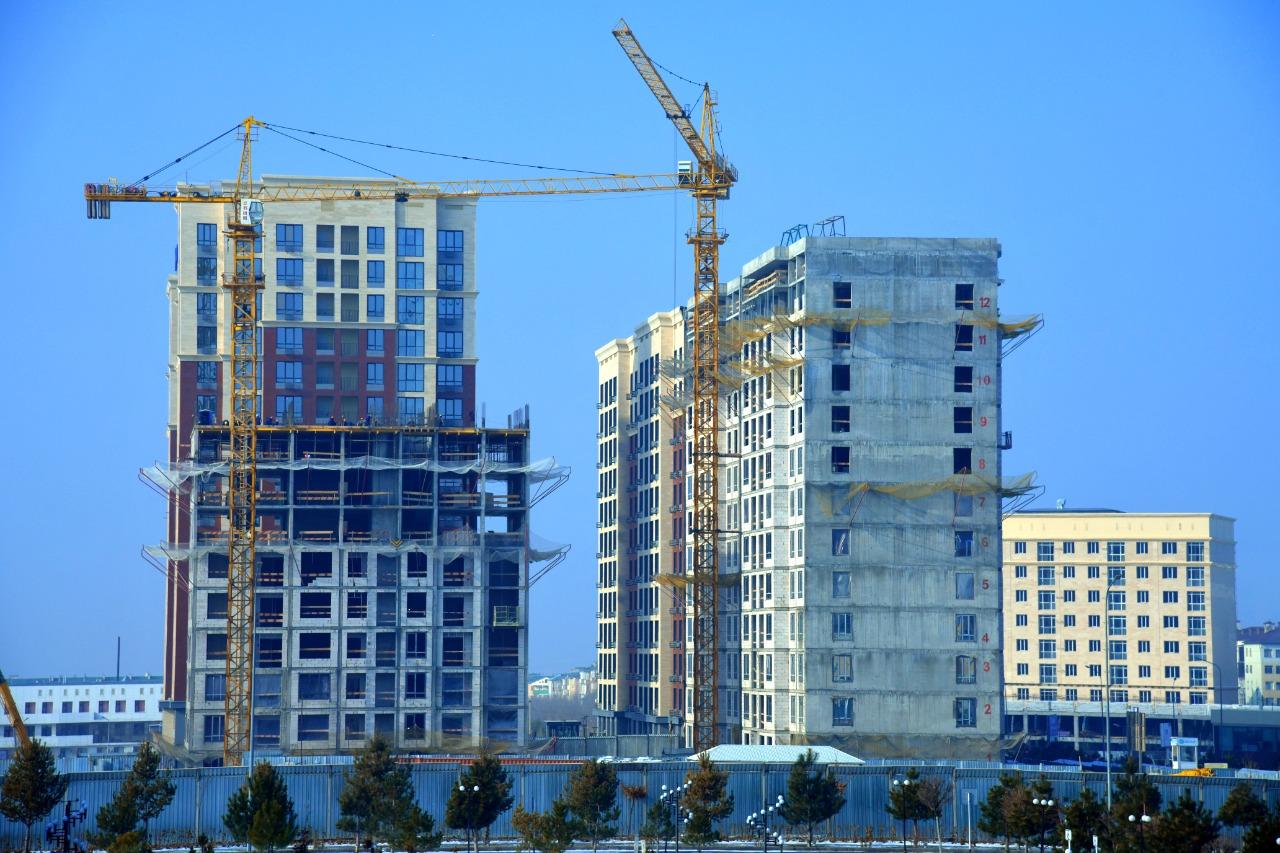
In the following areas, under the Nurly Zher program:
1) 7-20-25: 1,639 people received loans through STBs in the amount of 19,632.2 million tenge.
2) 2-10-20: 285 families received a loan through the HCSB in the amount of 4,019.6 million tenge (large families — 144 people, single-parent families — 81, families raising disabled children — 60).
It should be added that in 2020, 2 apartment buildings were put into operation in the city in the Nursat residential area. By the end of the year, 243 apartments were sold in these houses (2,487 million tenge from the sale of these real estate objects went to the budget). Of these, 50 apartments were distributed under the 2-10-20 program, and another 21 apartments were purchased by citizens on credit.
3) 5-20-25: under this program, 18 houses (1,264 apartments) were commissioned in 2020. Housing Construction Savings Bank held a competition for these houses and distributed apartments among 844 citizens, of which, at the end of 2020, 684 people took out loans. From the sale of these objects, the budget received 7661.9 million tenge. For the rest of the apartments, work is underway to arrange loans.
Within the framework of the Nurly Zher program in Shymkent, 18 rental houses (692 apartments) were commissioned in 2020. They were distributed among those on the waiting list of citizens in need of housing:
It is also worth adding that in the first quarter of 2020, within the framework of the above program, 904 people (working youth) were provided with rental housing without the right to purchase.
New roads, bridges, stops — how city's infrastructure improving
In 2020, 24.4 billion tenge was allocated for the development of the road industry. 261 objects or 416.8 km of roads and streets were covered by construction and repair works.

Of these, 224 objects or 280.3 km of roads were commissioned this year.
37 objects or 136.5 km of roads are objects, the implementation of which will be transferred to the next years.
More about the planned projects and budget:
- construction of 15 objects — 3,768.3 million tenge (44.5 km of roads, 1 bridge, 2 overpasses, 1 pedestrian crossing);
- 3,647.6 million tenge was allocated for the reconstruction of 10 facilities (15.3 km of roads, 3 bridges, 1 exit);
- overhaul of 6 facilities — 1,309.5 million tenge (49.8 km of roads, 2 bridges);
- medium repair of 230 objects — 13,179.6 million tenge (307.2 km of roads, 1 bridge);
- road maintenance — 770.0 million tenge;
- for laying crushed stone — 296.0 million tenge;
- ensuring road safety — 711.4 million tenge;
- installation of stops — 534.3 million tenge;
- development and state examination of 15 design and estimate documentation — 88.7 million tenge;
- quality control of work and materials — 89.5 million tenge.
Unemployment rate decreased in Shymkent thanks to state employment programs
In 2020, it was planned to create 31,999 new jobs, in fact, 33,737 jobs were created. Thus, the plan was fulfilled by 105.4%. By the way, out of 33,737 jobs, 13,533 are permanent, which is 58.2%. 8,753 jobs in 239 projects were created under the Employment Roadmap. Through employment agencies in 2020, it was planned to create 4,371 jobs, in fact, 4,491 jobs were created.

In Shymkent, new jobs created under the state programs Enbek, Employment Roadmap and state, sectoral programs, significantly reduced the unemployment rate.
So, within the framework of the Enbek state program in 2020 it was planned to cover 25,390 people with employment measures. In fact, 34 847 people (137.2%) were covered.
The Enbek State Program for the Development of Productive Employment and Mass Entrepreneurship is being implemented in 4 directions. In 2020, 4,386 people were involved in the first direction in Shymkent (providing program participants with technical and vocational education) (plan — 3,196 people, completed — 137.2%). Namely:
In the second direction (the development of mass entrepreneurship), it is planned to provide 6,712 people, in fact, 7,722 people (115%) are covered, including:
Within the framework of the third direction (promotion of employment of the population and development of the labor market through the mobility of labor resources), it is planned to provide employment measures to 15,482 citizens, in fact, 22,739 people (147%) are covered by employment measures: Namely:
As a result of the work carried out, the unemployment rate was 5.2%, the youth unemployment rate was 3.8%.
In Shymkent, within the framework of the Employment Roadmap - 2020 in the field of highways, 10.3 billion tenge were provided and 109 projects were implemented (of which from the republican budget — 2.2 billion tenge, through internal loans — 8.1 billion tenge).
Within the framework of the program, it was planned to create 2,844 jobs, including 1,445 places through Employment Centers.
In fact, 2,852 people were temporarily employed, including 1,445 through Employment Centers.
Under the Roadmap of Employment in Shymkent, 237 projects were specified, 44 663 million tenge were allocated. It was planned that the number of jobs created will be 8,742, of which citizens will be employed in 4,371 jobs through the employment center. In fact, out of 44.6 billion, 44.2 billion tenge (90%) was mastered, 8,753 jobs (100.1%) were created, of which 4491 (102.7%) were employed through employment centers.
The number of completed projects — 239.
Following the implementation of the Employment Roadmap, 503 people were employed for permanent work.
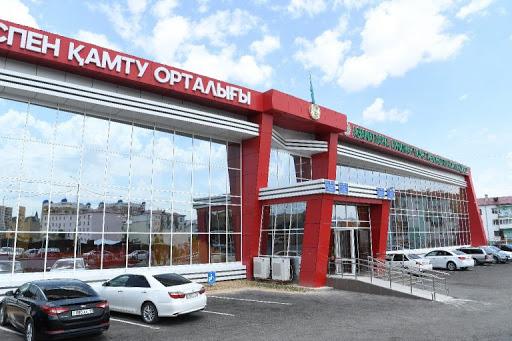
How digitalization creates comfortable and safe life
Within the framework of the state program Digital Kazakhstan in Shymkent, 5 main areas of digitalization will be implemented: housing and communal services, transport, education, health care, security and 6 additional areas.
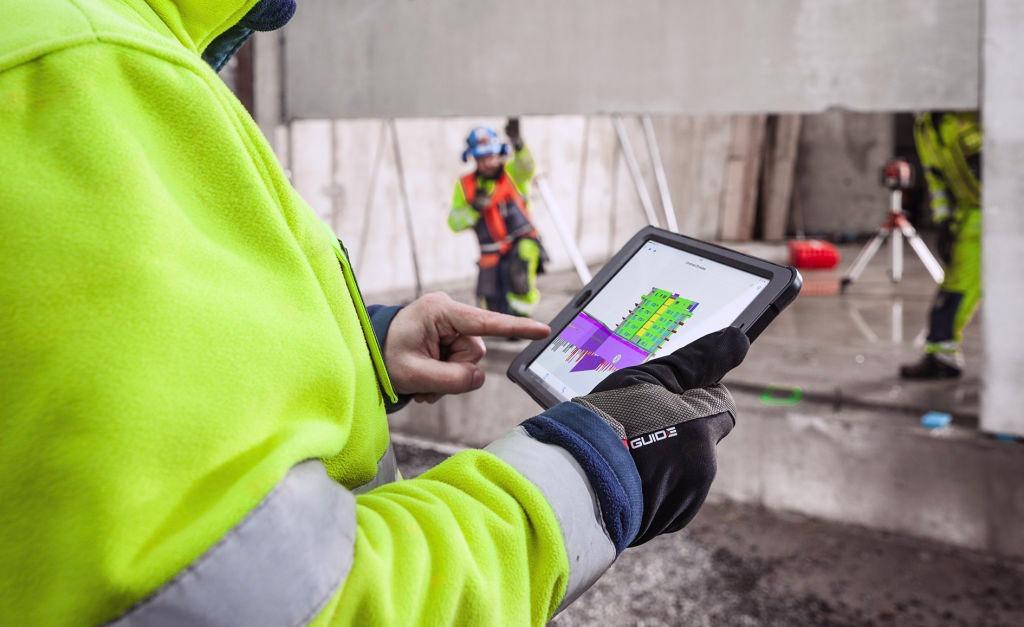
In the field of housing and communal services:
In the field of housing and communal services, 3 projects have been implemented, namely:
1. Smart Quarter project. In 2018, the Smart Quarter pilot project was implemented in 5 multi-storey residential buildings located in the Nursat residential area. Thanks to him, it was possible to install and connect to the information system e-SHANYRAQ digital general house metering devices, remotely transmitting data to heating, drinking, electrical systems.
2. Project for Implementation of IoT elements in residential buildings. According to the approved action plan, in 70 multi-storey residential buildings located in the city, general house water, heat and electricity meters with remote data transmission were installed.
3. Project for Implementation of IoT elements into the social environment.
In 127 social facilities located in the city (65 schools, 44 kindergartens, 18 polyclinics), metering devices for communal services (drinking water, heat and electricity) with remote data transmission are installed.
As a result of the implementation of these digital projects, it was possible to reduce costs and effectively use utilities in multi-storey residential buildings and social facilities, quickly respond and recover emergencies in utilities, clearly identify the place of an accident, and remotely receive readings for consumed services without human intervention.
In the transport industry:
In 2020, the project Electronic Ticketing was implemented at the expense of a private investor. On public transport, validators equipped with the Tolem system are installed.
At present, more than 156 thousand Tolem cards have been sold, 450 of 800 buses are equipped with Tolem system devices.
As part of the implementation of electronic ticketing, GPS data will be transferred to the popular Yandex 2GIS mobile applications. The map allows citizens to monitor public transport access online.
In the field of education:
Automated services:
1. enrollment of children in kindergartens through the system indigo24.kz;
2. admission of documents and children to kindergarten through the system «indigo24.kz";
3. enrollment of school-age children in grade 1 through the school.shymkent.edu.kz system;
4. 8 state services in the field of technical and vocational education on the platform college.snation.kz;
5. acceptance of documents and enrollment in the organization of additional education on the website Mindal;
6. 8 public services provided to orphans and children left without parental care through the Egov portal (E-akimat);
7. Recruitment of teachers on the website HR-Process.
As for the provision of the Internet, in 2020 in Shymkent, 147 schools were connected to the broadband Internet. In the new academic year, work is underway to increase the speed of the Internet from 12 Mb / s to 34 Mb / s.
In addition, in the conditions of distance education, out of 224,329 students, 80,780 (36%) revealed a shortage of computer equipment. Of the 80,780 students, 37,873 are in need of computers, 42,907 are children from families in need of social assistance.
In 2020, 47 330 (PC — 31,160, MB — 16,170) pieces of computer devices were purchased. All in all, 56 556 pieces of computer equipment were distributed among the students of secondary education organizations.
In the field of healthcare:
At present, the information system Damu Med has been introduced and is functioning in 32 medical organizations (13 polyclinics, 19 hospitals).
Among the main projects of the Digital Kazakhstan program in Shymkent, the following have been implemented:
1. The project “Modernization of the ambulance service-103”.
The project provides for the timely and high-quality provision of emergency medical care to residents of the city, the creation of a Call Center to ensure uninterrupted calls, as well as the modernization of the information system and automation of the ambulance station.
To date, the project has already delivered 100 special vehicles for the ambulance service.
2. Project "Implementation of an integrated medical information system».
The project envisages equipping medical institutions with an integrated medical information system, computer equipment and access to the Internet.
All 36 healthcare institutions in Shymkent are connected to the Internet. A medical information system has been introduced in 75 private medical organizations that provide free medical care. Computer equipment of healthcare institutions accounts for 78%, 220 computers were purchased within the framework of a public-private partnership.
In addition, a QR code system has been launched in 33 state medical institutions of the city. Thanks to new technologies, residents have the opportunity to find out information about doctors, their work schedule, work experience and read patient reviews.
This program helps to save time, remote exchange of documents, automation of work.
As a pilot project, two institutions (city polyclinics No. 3 and No. 5) will switch to the Smart Polyclinic system from 2021.
In the field of security:
As of 2020, the number of outdoor surveillance cameras in the city of Shymkent is 479. Among them there are 81 stationary cameras, 398 mobile cameras, 179 cameras are installed at the city crossroads, 151 in public places, 149 in the courtyards at 21 crossroads of the city, 212 intelligent automatic cameras Integra-S are functioning.
It is worth noting that all 479 CCTV cameras and 212 smart cameras are integrated into the Central Control Center of the DP in Shymkent and the Situation Center of the Ministry of Internal Affairs of the Republic of Kazakhstan.
Also, the city akimat, within the framework of a public-private partnership, installed a hardware-subject complex Sergek at 14 objects, which is 56 cameras in the complex.
In addition, to date, Kazakhtelecom JSC has installed 2,472 cameras in the entrances of 1,152 residential buildings.
In the field of tourism:
The Tourism Department acquired 5 interactive columns and 2 displays, thanks to which every resident of the city or tourist can get all the necessary information about the tourist Shymkent.
On Internet quality:
In 2020, an analysis of micro-districts and residential areas with low speed of mobile communication and the Internet was carried out in the city. For stage 1, 11 lands have been identified, on which antenna mast devices (columns) have already been installed. Including in the residential areas Altyntobe, Kokbulak, North-West and Dostyk (Severnaya Dacha) base stations have been fully launched.
In addition, base stations have been installed in the Asar, Shimsiti and Aktas-2 microdistricts, and technical work is underway to put them into operation.
Also in the microdistricts Asar-2, Turan and Shymcity-2 columns will be installed and base stations will be created.
Relevant agreements were received from the telecom operator Kcell for the installation of a base station in the residential area Aykol.
In addition, for the 2nd stage of providing the city with high-quality Internet, mobile base stations will be installed in 27 residential areas and neighborhoods. Another 16 residential areas will be provided with high-quality internet via an optical network.
At the same time, within the framework of the project "Conducting courses to increase the level of digital literacy of the population", the planned indicator in 2020 is to bring the level of digital literacy of the population to 80%. The corresponding work on the implementation of this indicator has been fully completed. As a result, in the city of Shymkent, 12,022 (against the plan of 12,000) city residents underwent online training and increased their digital literacy.
Number of three-shift schools in Shymkent decreased
Preschool education and training
In educational institutions of Shymkent with preschool education and training, the percentage of children from 3 to 6 years old is 100%, children from 1 to 6 years old — 90.4%.
The network of preschool organizations is 526 units — 79 state and 477 private. 66,125 children study there. The number of teaching staff — 5,819 people.
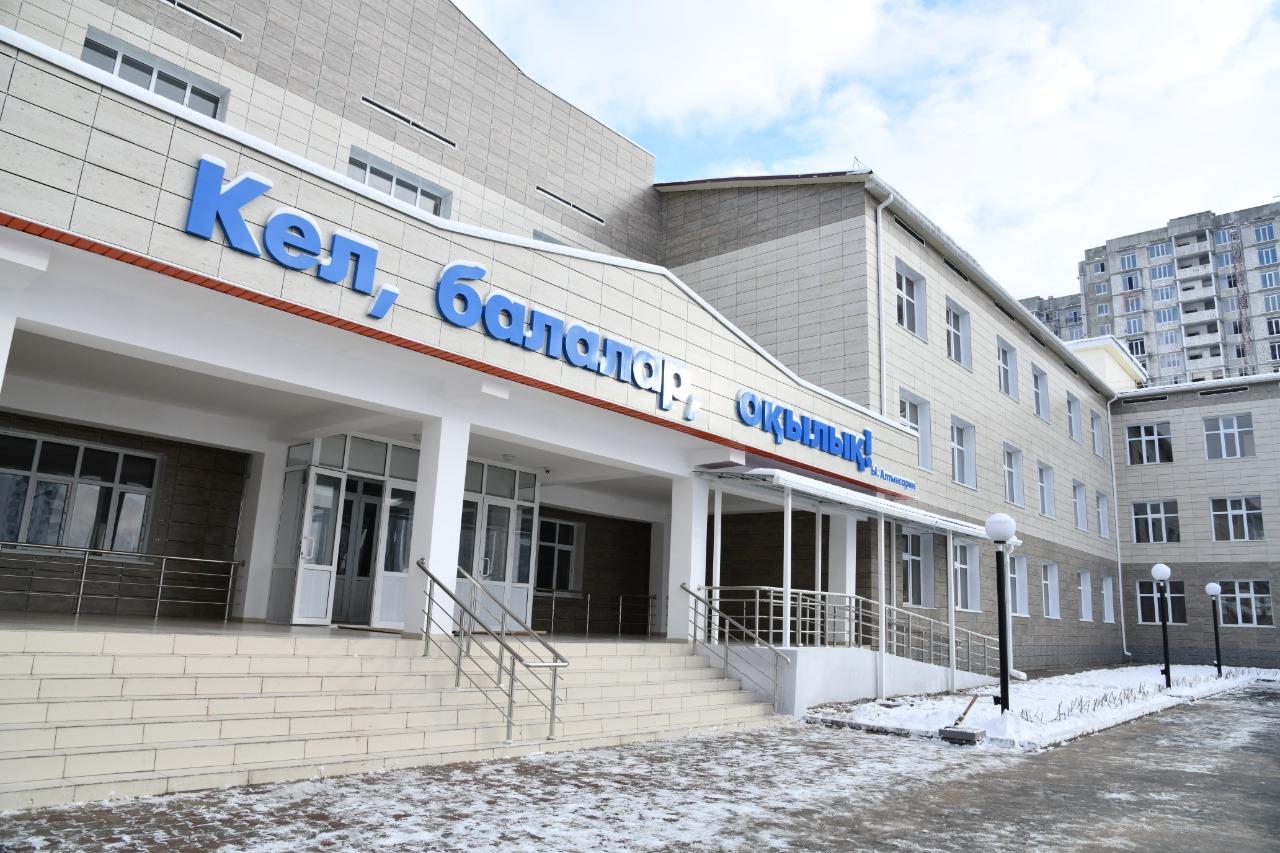
Secondary education
There are 184 institutions of secondary education in Shymkent: 151 day state general education schools and 33 private ones. The contingent is 226,679, including 209,587 children study in daytime state general education schools, 13,342 people study in private ones. In addition, there are 11 organizations of additional education in Shymkent, where 20,061 children study. The number of teachers — 18,770 people.
In 2020, there are 15 three-shift schools in the city, previously there were 19, by 2023 it is planned to completely reorganize.
In the 2020-2021 academic year, in the context of distance education, a shortage of computers was revealed among 80,780 students. To date, 56,556 families have received computer equipment for temporary use with a total coverage of 80,780 students.
Epidemic situation in the city under control
In Shymkent, in the period from March 24, 2020, to Dec. 31, 2020, 5,512 cases of the COVID-19 virus were registered, 2,811 of them were symptomatic, 2,701 were asymptomatic. The incidence rate was 522.9 per 100 thousand population. Of the 5,512 cases, 29 were imported, 4,078 were local, 1,405 were contact persons.
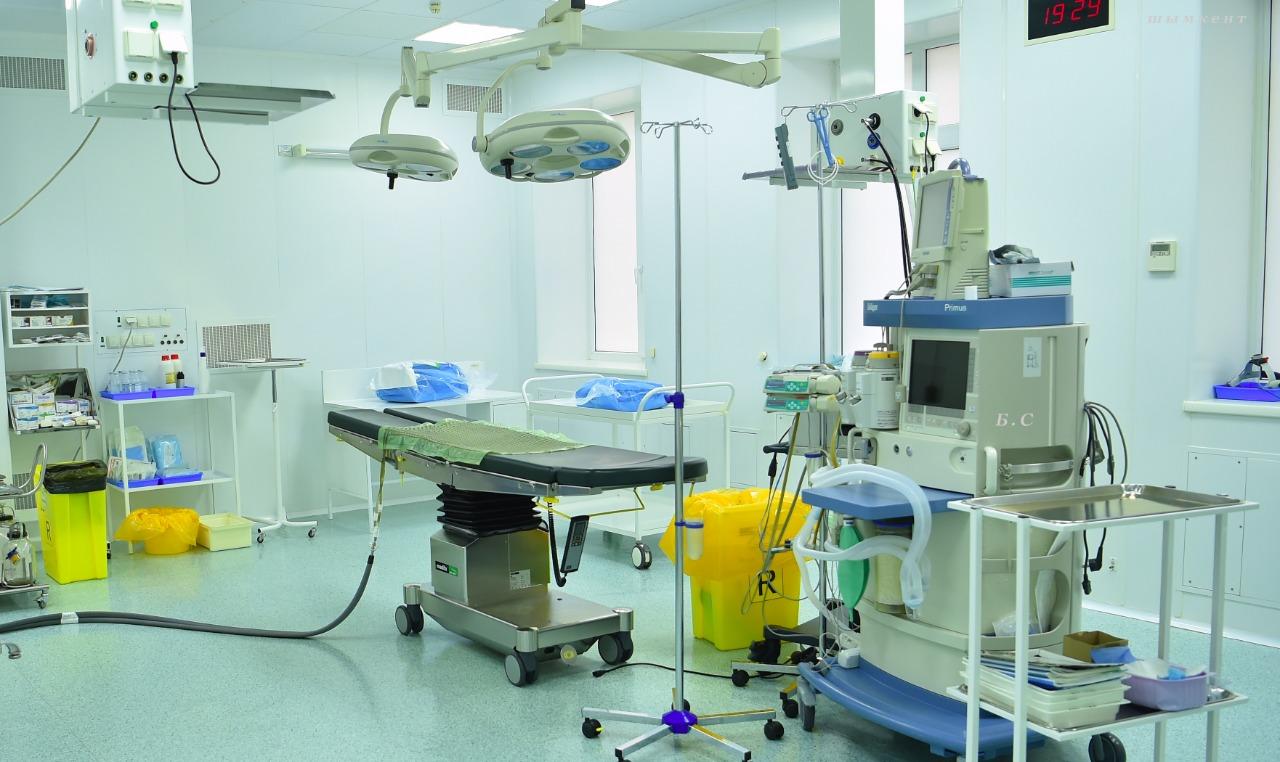
In total, as of December 2020, 11,942 contact persons have been identified, taken for medical observation, withdrawn from quarantine — 9,180. Discharged with recovery — 5,299, died — 79 people.
From Aug. 1, 2020 to Dec. 31, 2020, 1,305 cases of pneumonia with signs of COVID-19 were registered. There are also 12 children among the cases.
To prepare for a possible deterioration of the epidemiological situation, 3 scenarios for the deployment of infectious and quarantine hospitals have been developed.
With a stable epidemiological situation and planned work of medical organizations, 1,220 beds are deployed.
With the seasonal worsening of the epidemiological situation, the bed capacity of infectious hospitals increases to 4,016.
In case of an outbreak of infections and a crisis epidemiological situation, the bed capacity will reach 5,416 beds.
Today the throughput of PCR testing is 3,900 tests per day. As of Dec. 31, 2020, 191,133 tests were carried out, 761 per day.
In total, 14,157 medical workers underwent training in the prevention and treatment of coronavirus infection in Shymkent.

4,308 medical workers involved in work with coronavirus infection were paid 5.5 billion tenge. Lump-sum social payments were also made to sick 411 medical workers. The families of 21 deceased doctors received monetary compensation from the state.
To diagnose pneumonia, 3 computed tomography devices were purchased, which are currently installed in the city infectious diseases hospital and city hospitals No. 2 and No. 3.
In total, 19 computed tomography devices are currently operating for the city residents.
The Ministry of Health has delivered 156 ventilators, and 126 more will be purchased soon. The total number of ventilators is planned to be increased to 615.
If we talk about the equipment, at present work has been completed on the installation of 3 oxygen stations: two — on the basis of the city infectious diseases hospital, one more — in the city hospital №3. Work is also underway to connect 717 oxygen points in medical organizations, install 9 tanks for liquid oxygen.
Within the framework of inpatient care, the issue of providing medicines and medical products has been resolved.
Contracts were concluded for the supply of medicines and medical devices for a total amount of 7.21 billion tenge.
A single distributor supplied medicines and medical products in the amount of 6.2 billion tenge.
At the moment, medical organizations have formed a two-month supply of medicines and medical devices against COVID-19.
946.7 million tenge has been allocated from the reserve of the Government of the Republic of Kazakhstan to combat COVID-19 in the city. Medicines and medical products for the amount of 220.6 million tenge were purchased from a single distributor.
In order to prevent a shortage of medicines from the reserve of the city akimat, budget funds in the amount of 180 million tenge have been allocated for the purchase of 5 types of medicines.
The monitoring of the compliance of retail prices in pharmacies, the supply of medicines is carried out. Now the city's pharmacies have a stock of medicines for the treatment of COVID-19 totaling 1.7 billion tenge.
In addition, a stock of disposable medical masks (6.3 million pieces) has been created. The production capacity of two manufacturers located in the city is 200,000 masks per day.
659 million tenge was allocated for the purchase of medicines for retail trade within the framework of the stabilization fund.
In general, the epidemiological situation in the city is under constant control. The work to prevent the spread of coronavirus infection continues.
Modernization of housing and communal services sector
In Shymkent, work is constantly being carried out to modernize the systems of water supply, electricity, gas supply, etc. Namely:
On water supply
In 2020, construction of water supply networks in 22 settlements and 5 main water pipelines was carried out in Shymkent. For these works, 10.097 billion tenge was allocated from the budget, including 1.256 billion tenge from the republican budget, 4.183 billion tenge from the local budget, and 4.659 billion tenge under the Employment Roadmap 2020 program.
According to the results of the past year, construction of intra-quarter systems and two main water pipelines was completed in 17 settlements. About 34 thousand residents are provided with high-quality drinking water. The coverage rate increased from 94.7% to 95.6%.
In the remaining 5 settlements, the construction of intra-quarter drinking water systems and 3 main water pipelines will be transitional in 2021.
Sewerage
In 12 months of the specified period, construction of intra-quarter sewer networks and three main sewer collectors is underway in 12 settlements. For these works, 1.8 billion tenge was allocated from the budget, including 638.7 million tenge from the republican budget, 724.2 million tenge from the local budget, and 485 million tenge under the Employment Roadmap 2020 program.
By the end of 2020, the construction of 1 main sewer collector was completed, which, in turn, will make it possible to develop design and estimate documentation and connect 7 settlements with a population of 12 thousand people to the sewer system, located in the southeastern part (3000 subscribers). The coverage rate is 49.1%.
Electricity supply
In 2020, the construction of intra-quarter electrical networks and 3 substations in 16 settlements was carried out. 7.7 billion tenge was allocated from the budget for these works, including 6 billion tenge from the republican budget, 1.7 billion tenge from the local budget.
At the end of 2020, the construction of intra-quarter electric networks was completed in 13 settlements, about 23 thousand residents were provided with high-quality electricity. The coverage rate increased from 93% to 95%.
In the remaining 3 settlements, the construction of internal electrical networks and 3 substations will be transitional in 2021.
Gas supply
In 2020, work began on the construction of gas supply systems in 5 settlements (rolling over to 2021) Asar-2, Dostyk, Azat, Altyntobe, Badam (195 quarter) and 4 main gas pipelines. For these works, 7.4 billion tenge was allocated from the budget, including from the republican budget — 1.2 billion tenge, from the local budget — 6.2 billion tenge.
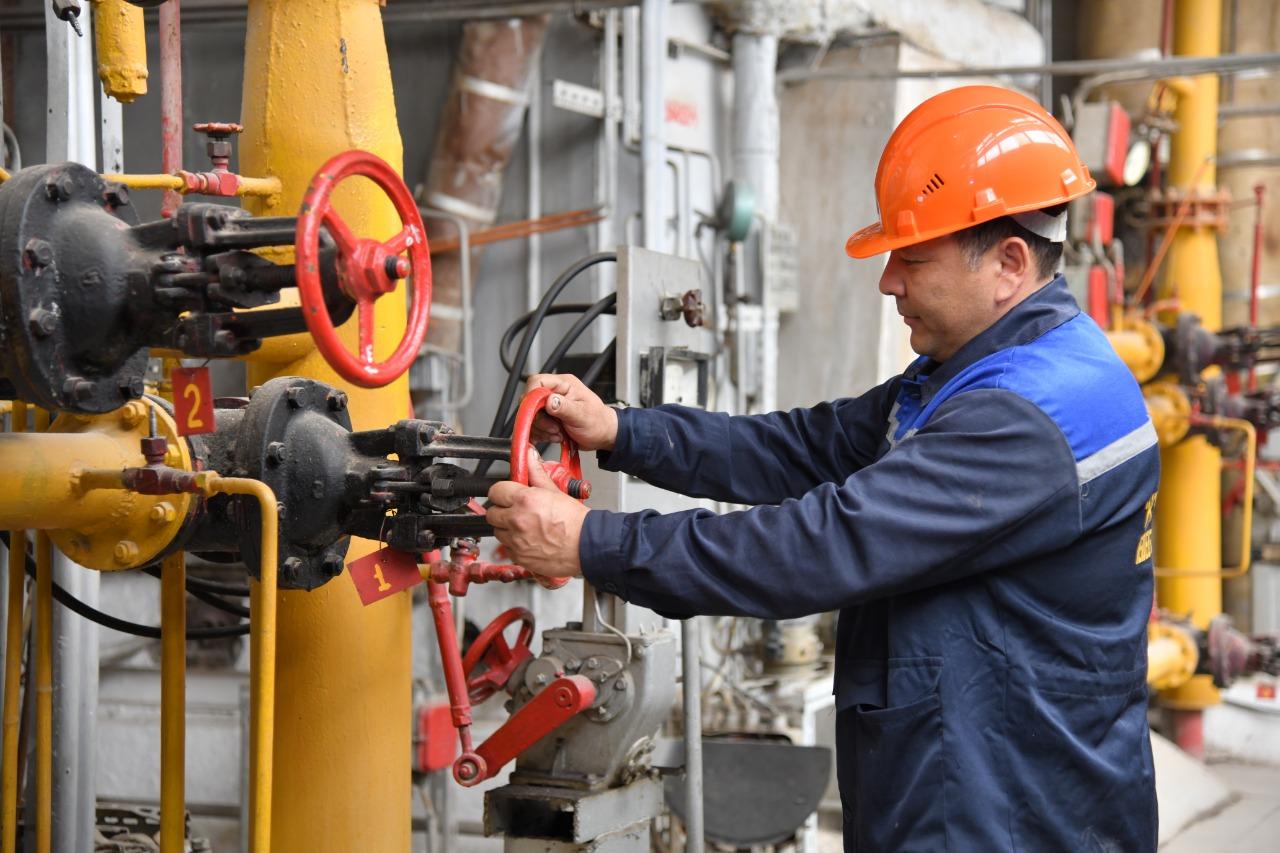
By the end of 2020, construction work was completed at 1 facility (main gas pipeline of the Turan microdistrict (1st stage)).
On heat supply
In 2020, overhaul and current repairs of main and intra-quarter pipelines were carried out, the level of wear of heat pipelines decreased from 43% to 38%.
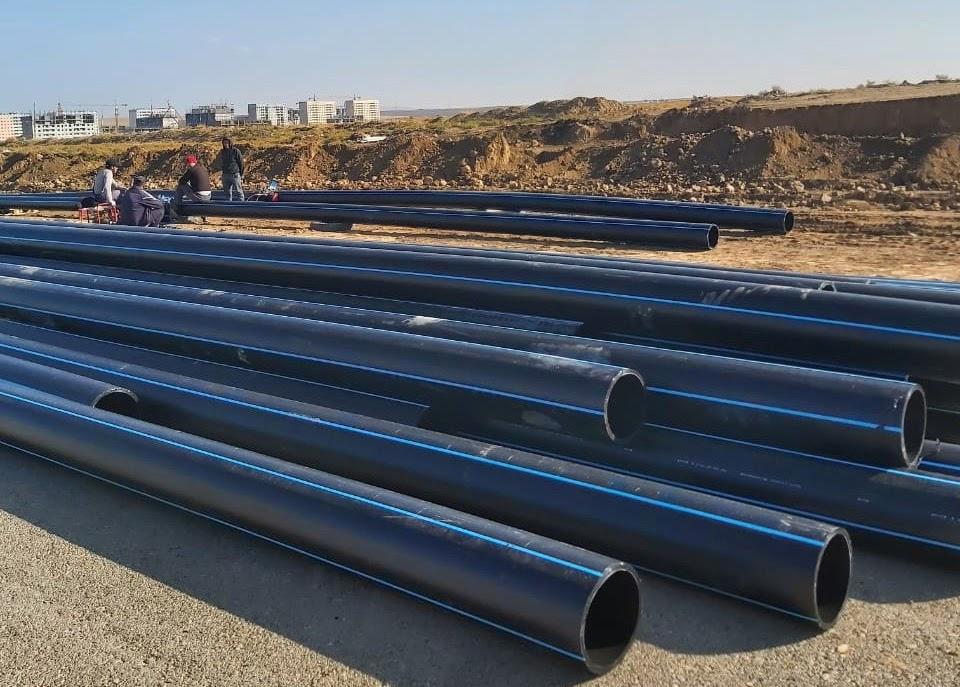
In 2020, in the field of heat supply, reconstruction of 2 out of 5 pumping stations is underway, overhaul of three more stations, 10.4 km of new heating networks, reconstruction of 3.07 km of heating networks, overhaul of 0.36 km of heating networks. 5.9 billion tenge was allocated from the budget for these works.
At the end of 10 months of 2020, work was completed on the reconstruction of 2 of 5 pumping stations, overhaul of three, reconstruction of 6.8 km of new heating networks, reconstruction of 3.07 km of heating networks, overhaul of 0.36 km of heating networks.
The construction of two facilities (3.6 km) will be transitional in 2021.
The heating season of 2020 in the city began on Oct. 15. Today 1,896 residential buildings and 479 budgetary institutions of the city receive heat energy in accordance with a continuous temperature and hydraulic regime.
The need of Shymkent for coal is 80.7 thousand tons, of which 5.9 thousand tons were supplied to small boiler houses of budgetary institutions, the need of GKP Kuatzhyluortalyk-3 in two boiler houses was also provided. Currently, Shymkent residents are provided with 73.7 thousand tons of coal. In addition, the warehouses have a coal reserve of 30 thousand tons.
Stay updated about the events of the Prime minister and the Government of Kazakhstan - subscribe to the official Telegram channel
Subscribe